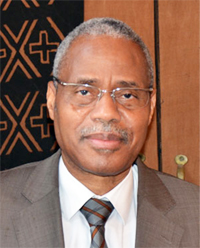|
The situation in Northern Mali risks creating a serious humanitarian crisis. Is it possible to open a humanitarian corridor?
There is clearly a need for humanitarian access to the area, but we are currently confronted with two problems. The first is purely logistical and concerns the transport of aid. Although this involves crossing thousands of kilometres of desert, it is not an insurmountable problem; the President of the Regional Assembly of Timbuktu, with the help of the Red Cross of Mali, succeeded in transporting five tonnes of food and medical supplies to Timbuktu. The second problem, however, is much more difficult to resolve: ensuring that aid is distributed to the most vulnerable populations.
Are you worried about the misallocation of aid?
There are no longer any police chiefs or local administrators to prevent the deviation of aid resources. All northern towns are under the control of rebel groups, and each of these groups has different characteristics and different objectives. To transport and distribute food and medical supplies to populations in need, it is vital to adapt to the different local contexts.
For example, the town of Gao, which is currently under MNLA control, is suffering the most. Hospitals, schools and gas stations have all been pillaged, and humanitarian stocks have been ransacked. The people are distraught and live in fear. Under such conditions, the Red Cross has not been able to transport aid to the city. In Kidal and Timbuktu, however, the situation is less chaotic and basic infrastructure has been preserved. The first attempt to send supplies to Timbuktu was successful. As long as the security situation in the area remains stable, a second delivery needs to be attempted.
What is the role played by the Malian Diaspora and your Embassy?
The Malian community has been very proactive; thousands of Malians, Franco-Malians and friends of Mali gathered together in the “March for the Peace and Unity of Mali,” which took place on 7 April in Paris with the goal of raising awareness about the situation in Mali. I was also recently received by the Inter-Parliamentary Group of Franco-West African friendship of the Senate, which has called for dialogue between all political stakeholders of Mali. The Group of Malians in France for Peace (Collectif des Maliens de France pour la paix), has organised conferences and fundraising galas, primarily in Montreuil. Moreover, a wide range of activities have been organised within the “foyers maliens” which serve as important social and cultural spaces for the Malian Diaspora. Inter-Malian solidarity is strong worldwide, and similar activities have been organised in the United States and elsewhere. I would like to take this opportunity to thank our compatriots and friends for their support and solidarity with the Malian people.
What message would you like to convey on the situation in Northern Mali?
Public communications play a critical role in the current crisis. It cannot be emphasized strongly enough that the North is not a purely Tuareg region. The Tuaregs are one minority group amidst the large variety of different communities living in Northern Mali (Sonrhaï, Fulani, Maurs, Arabs, etc.); these facts are usually not very well known by the wider public, and even less within the international community. To a certain extent, the MNLA intended, with its Declaration of Independence, to make people believe that the North was legitimately their land. This is not at all the case; this land also belongs to other ethnic groups.
The new transitional Prime Minister Cheick Modibo Diarra has already stated that not “a square centimetre of Malian territory will remain occupied […]” and that “every possible option will be considered, starting with negotiation.” Being faced with multiple factions with diverging interests, how much power does he have to negotiate?
The Prime Minister is advocating dialogue, but not from a weak position with “a knife being held at his throat”. We prefer the term “dialogue”, because there is ultimately nothing to negotiate; the territorial integrity of Mali is non-negotiable. We can, however, discuss the different ways of managing the Northern regions. Although decentralisation in Mali has already reached an advanced stage, there may still be some options for improvement.
The role of ECOWAS in managing the crisis in Mali was rapid and exemplary. Do you believe that ECOWAS will go as far as military intervention in order to free the North?
The ECOWAS Heads of State and government have formally confirmed their commitment to the unity and territorial integrity of Mali. They have not only denounced “the continued occupation of the regions of Kidal, Gao and Timbuktu by the rebels,” but have also decided to take all necessary measures “to assist the government of Mali in re-establishing its sovereignty over the entire territory.” An ECOWAS Standby force will be deployed and a mechanism for consultation and co-ordination with partners for the mobilisation of support will be set up by the ECOWAS Commission with immediate effect. These strong commitments from ECOWAS are a very encouraging sign.
Is there any hope for a rapid resolution of the conflict? What is the outlook for the future?
Without a doubt, Mali is confronted with an unprecedented crisis. In the coming months, the transitional government will have to address two major challenges: 1) how to re-establish national unity and Mali’s territorial integrity and 2) how to hold free, transparent and democratic elections.
These are very difficult tasks, but we have reason for hope. Mali is a great country built on a rich cultural heritage and ancient civilisations. I am confident that Mali will resolve these two challenges with, of course, the support of our brother countries from ECOWAS and the international community.
|


